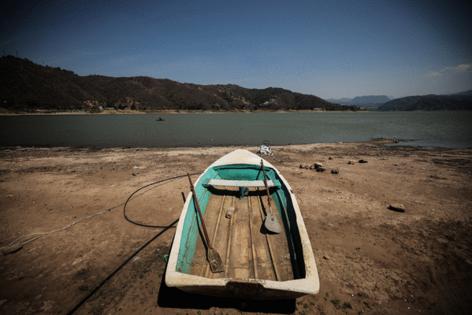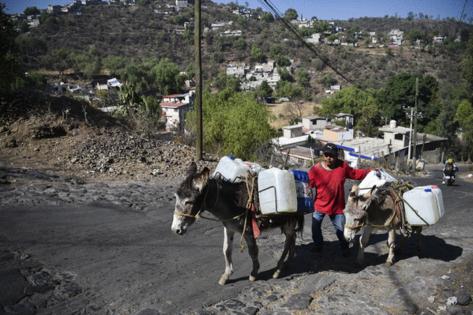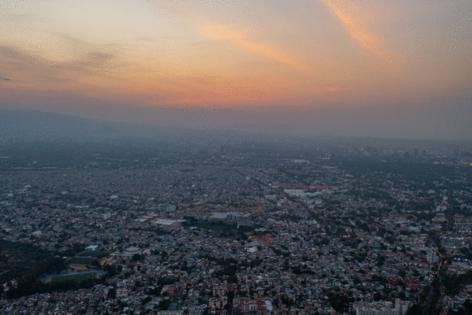This mega-city is running out of water. What will 22 million people do when the taps run dry?
Published in Science & Technology News
MEXICO CITY — When Reina Cervantes Trejo heard the truck, gears grinding as it climbed the street to her house, she rushed outside.
"Thanks to our good Lord!" she said. "The water has finally arrived!"
Cervantes and her husband hurried to help the driver, Fredy Romero, as he yanked hoses from the truck to fill up a cistern and a hodgepodge of plastic buckets, pails and kitchen pots the couple had assembled on their patio.
The taps had dried up weeks ago, and Cervantes' daughter had been calling the city nearly every day, pleading for the water trucks to come to their working-class neighborhood in the city's south.
Cervantes desperately needed the water to bathe her father, who recently turned 100, and keep his clothes clean.
"I don't like to see my father looking dirty and uncomfortable," said Cervantes, 68. "He doesn't deserve that, especially at his age. It is no way to live."
Water shortages are becoming a way of life in cities across the globe — Los Angeles; Cape Town, South Africa; Jakarta, Indonesia; and many more — as climate change worsens and authorities often pipe in water from ever-more-distant sources.
"Water sources are depleted around the world," said Victoria Beard, a professor of city and regional planning at Cornell University. "Every year, more cities will face 'Day Zero,' with no water in their piped systems."
Mexico City — founded by the Aztecs on an island amid lakes, with a rainy season that brought torrents and flooding — might have been an exception. For decades, the focus has been getting rid of water, not capturing it.
But a grim convergence of factors — including runaway growth, official indifference, faulty infrastructure, rising temperatures and reduced rainfall — have left this mega-city at a tipping point after years of mostly unheeded warnings. Distant reservoirs and underground wells are drying up as leaders belatedly confront an existential dilemma.
...continued
©2024 Los Angeles Times. Visit at latimes.com. Distributed by Tribune Content Agency, LLC.












Comments